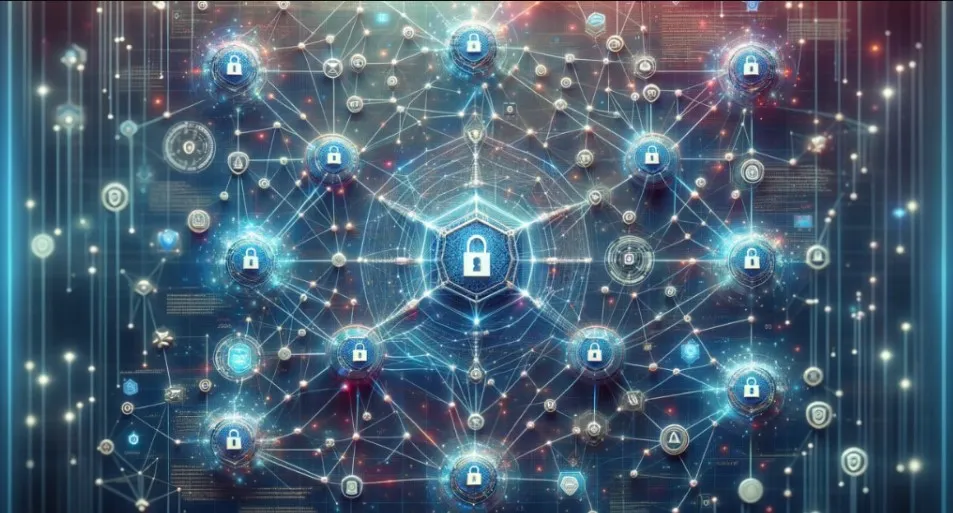Decentralized social networks on TON: The future of user privacy and control
Introduction
Contemporary challenges of traditional social networks
Traditional social networks have become an integral part of modern life. They are used by millions of people every day to exchange information, share experiences, create businesses, and even organize social movements. However, their popularity is accompanied by serious problems that affect privacy, security and freedom of expression.
First, the centralized nature of platforms like Facebook, Instagram or Twitter means that all user data is stored in one place, usually on the servers of the owning company. This makes them vulnerable to cyberattacks and data breaches. In recent years, there have been numerous scandals involving the use of users’ personal information for advertising and political purposes.
Second, centralized platforms are often criticized for censorship. Publications can be deleted and accounts blocked at the discretion of the administration, limiting freedom of expression. Users have no control over how the moderation system works, causing distrust.

How TON addresses privacy and control issues
The decentralized technology behind TON Blockchain offers a completely different approach. Instead of storing data on centralized servers, information is distributed across nodes in the network. This eliminates dependence on a single company and minimizes the risks of leaks.
With TON-based platforms, users have full control over their data through encryption and smart contracts. These solutions provide privacy and data control, making the use of such networks safe and secure. In addition, the lack of centralized control eliminates censorship, allowing users to express themselves freely.
Thus, decentralization in social media becomes an important step forward to create a safe digital space where every user owns their data and has the right to freedom of expression.
Key features
Data ownership, encryption and transparency
Data privacy: the new standard
On platforms built on the TON blockchain, user privacy is prioritized. Unlike traditional social networks, where information can be shared with third parties without the user’s knowledge, in decentralized networks, control over data remains with the owner.
Data is encrypted and stored on distributed nodes. Only the user has the right to share their information, and no one, including platform administrators, can access it without authorization. This creates conditions for implementing the principle of privacy and data control, which becomes a key advantage of decentralized social networks.
Transparency of transactions
The TON blockchain ensures transparency of all transactions. Every action, be it posting, liking or transmitting data, is recorded in an immutable registry. This eliminates the possibility of information manipulation.
Such a system is especially important for building trust between users. For example, in traditional social networks, algorithms are often hidden from the public, raising suspicions of bias. On the TON platform, all processes are transparent, making it more honest and open.
Examples of decentralized social networks
TON Talk
TON Talk is an example of a new generation messenger built on the basis of decentralized media technologies. In this system, users can exchange messages directly without having to contact central servers. This eliminates the risk of data interception, ensuring the confidentiality of communication.
TON News
News plays an important role in shaping public opinion. However, traditional news platforms are often criticized for censorship. TON News offers an alternative where every user can publish content without the risk of being deleted or blocked. The platform ensures censorship resistance by giving all participants equal rights.
CreativeHub
For creative people, TON social media platforms offer new opportunities. On platforms like CreativeHub, artists, musicians and writers can publish their work protected by blockchain. This allows copyrights to be honored automatically and revenues to be distributed directly to creators.

Potential applications built on TON are
Micropayment applications
The TON network is actively used to implement micropayments. Users can support their favorite authors, send donations or pay for premium content. This approach makes the TON applications chain attractive to developers and users who value flexibility and low fees.
Platforms for educational content
Educational platforms built on TON provide users with access to courses, lectures and learning materials using micropayments. Teachers and content creators can earn directly, without middlemen.
Decentralized video hosting
Traditional video platforms like YouTube have been criticized for aggressive monetization and censorship. On decentralized video hosting platforms built on TON, users can share videos without the risk of being blocked. This creates an environment for free expression and increases revenue for content creators.
Conclusion
Impact on user privacy and freedom of expression
What is decentralized social media is changing the way we think about how social platforms should work. They offer a unique combination of security, privacy and transparency. Users have full control over their data and content, barring third-party interference.
In addition, TON social media platforms help protect freedom of expression. The absence of censorship and centralized control creates conditions for honest dialogue and self-expression.
With the development of technology, the role of decentralization in social networks will only grow. The future of social networks is seen in the creation of platforms where users are not only consumers, but also active participants, controlling their data and actions.
TON offers unique solutions that can change the approach to creating and using social networks. In the future, such platforms will become not only more secure, but also more democratic, giving every user equal rights and opportunities.